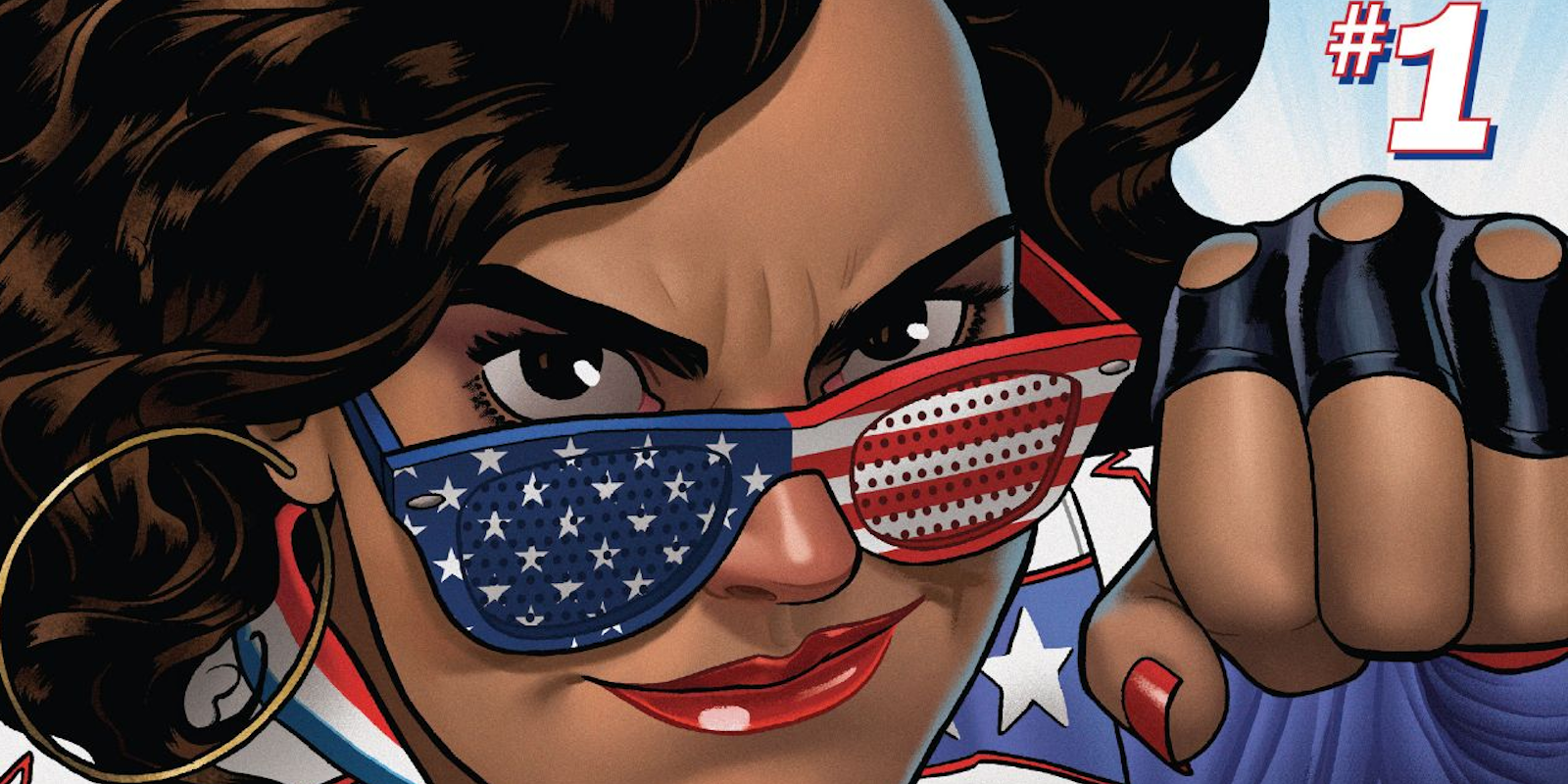America Chavez has finally gotten her own solo series, swapping intergalactic adventures for college life. The first issue bursts with energy and personality, balancing explosive action scenes with a more grounded setting for the dimension-hopping superhero.
America falls into the same category as Ms. Marvel and Squirrel Girl: a superhero comic with an authentic youthful tone. This is a surprisingly rare achievement, because while Marvel and DC publish plenty of comics with young heroes, they’re often written by middle-aged men. And this inevitably leads to some “How do you do, fellow kids?” awkwardness.
America went in a different direction, hiring YA author Gabby Rivera to write Marvel’s first queer Latinx lead, collaborating with artist Joe Quinones and colorist Jose Villarrubia.
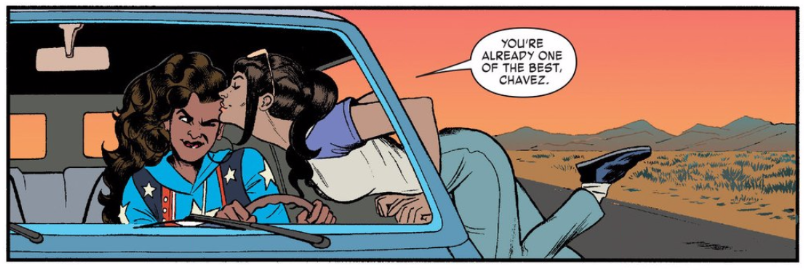
So, who is America Chavez?
Created by Joe Casey and Nick Dragotta for the 2011 Vengeance miniseries, America Chavez is a reboot of the Golden Age hero Miss America. She’s a super-strong badass who can fly and kick holes into other dimensions.
Chavez was born in an alternate reality called the Utopian Parallel, leaving home to travel the multiverse after her mothers died. Following a brief stint in the Teen Brigade in Vengeance, Kieron Gillen and Jamie McKelvie’s Young Avengers transformed her from C-list side-character to cult favorite. (It also transformed her costume from this cleavage/butt-crack nightmare into something a young woman would voluntarily wear while kicking ass.)
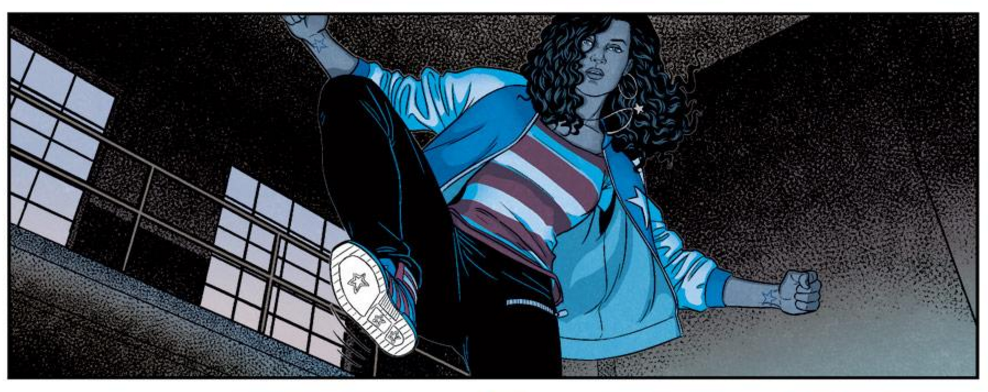
Young Avengers set the tone for America’s role in later teams like A-Force and the Ultimates, as an independent heavy-hitter who always sticks to her guns. She fulfills the same wish-fulfillment role as early Captain America: an underdog with a relatable anger about injustice, armed with more confidence and power than us mere mortals in real life.
Fans spent years clamoring for Chavez to get her own solo series, partly spurred on by Marvel’s frequent PR statements about promoting diverse characters. The desire for an America Chavez comic was so strong that Image Comics greenlit a series about “America Vasquez,” a similar character from Chavez’s creators Casey and Dragotta. But Marvel eventually saw the light, launching America in March 2017.
America #1
The new series ties up America’s relationship with the Ultimates, creating an easy starting point for new readers. Chavez is still dating her girlfriend Lisa and is still BFFs with Kate “Hawkeye” Bishop, but she’s basically flying solo for the first time in years. Issue #1 marks her arrival at Sotomayor University, a college catering to superpowered students.
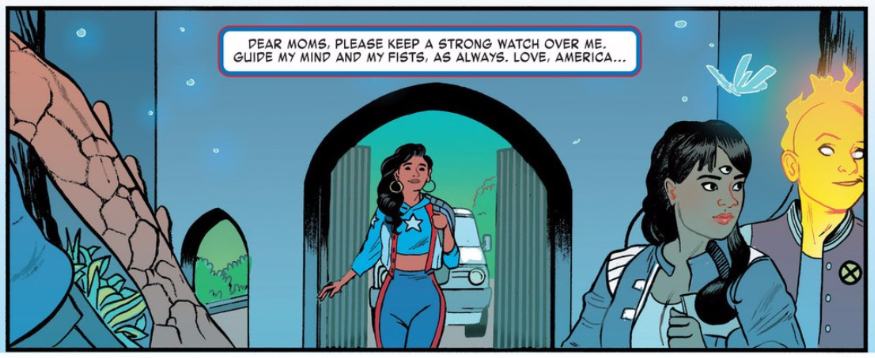
America deftly handles two issues that inspire frequent criticism in superhero comics: sexuality and character design. America Chavez isn’t just incidentally queer, and her sexuality isn’t confined to scenes she shares with her love-interest. It’s a central part of her identity.
The comic also features another queer character (Prodigy from Young Avengers), solving a problem that many superhero writers don’t seem to understand. Queer characters are usually portrayed as lone wolves in a sea of straight people, only interacting with other queer characters in a romantic context. This isn’t really true to real-life experience, so it’s refreshing to see Prodigy and America as college friends.
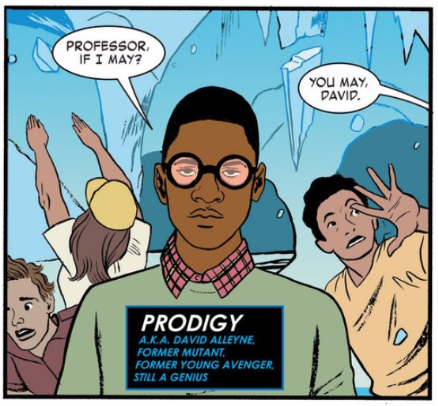
Finally, there’s America‘s fashion choices. Female superheroes are often drawn in impractical, sexualized outfits, but that isn’t the only problem. A lot of those outfits are also wildly out-of-date, borrowing looks that belong in an early-2000s Britney Spears photoshoot. Jamie McKelvie’s Miss America redesign was a cosplay hit because it looks trendy and realistic, and America follows in its footsteps with stylish fashion choices—even for background characters. This kind of detail is vital for a comic like America, bolstering that indefinable sense of cool.

